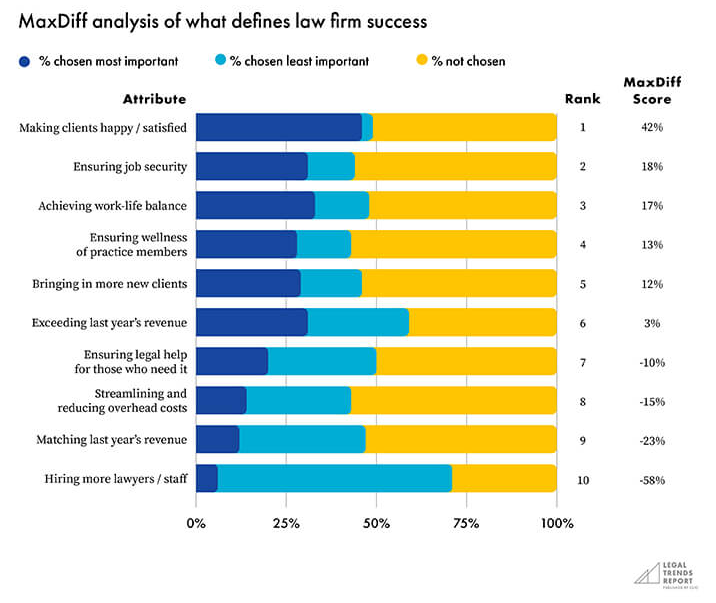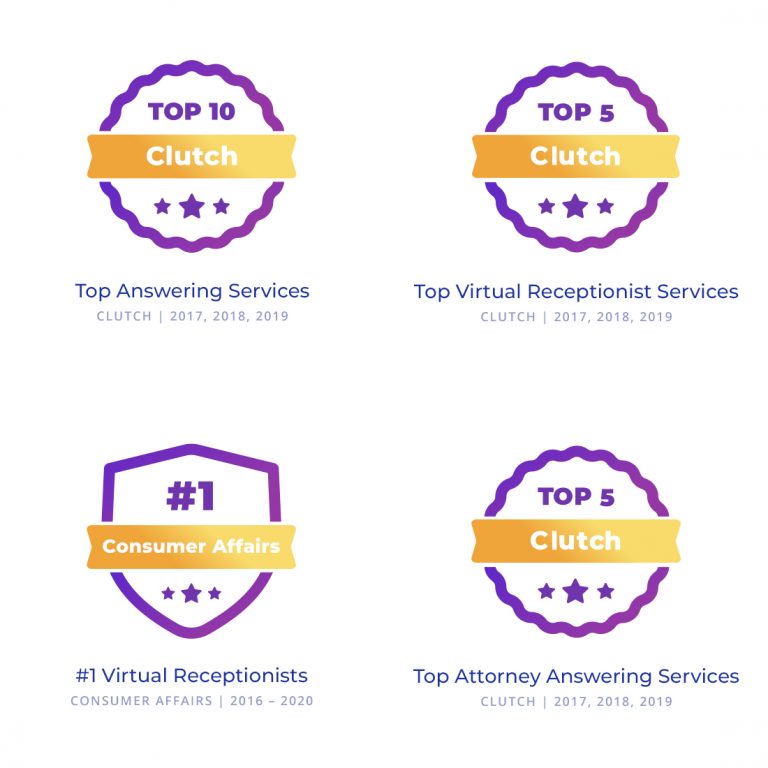Since 2016, Clio’s Legal Trends Report (direct download link) has brought greater insights into the business of legal practice. Its aim is to cover new approaches to understanding some of the most pressing issues that lawyers and clients face today and how to overcome those challenges. In this year’s report, we find out what really drives a law firm’s success, exactly what clients are looking for when hiring a law firm, and we earn a better understanding as to how firms can grow their business. Yes, even during a pandemic.
In this article, we’ll recap the highlights of this year’s trends report starting with a topic that’s been on every member of the legal field’s mind: How this pandemic has affected legal practices everywhere.
How This Time of Crisis Has Affected Your Legal Practice
At the start of March this year, the World Health Organization officially designated COVID-19 as a global pandemic and the US declared a national emergency. Major events were canceled, borders were closed, and the stock market declined rapidly. By the end of March, the impact of the pandemic was in full force, implicating travel bans, and advising social distancing policies that led to statewide lockdowns and stay at home orders.
This impacted the business of law dramatically. In comparison to 2019, the volume of new casework dropped by 6% in March. By April, the number of new matters opened dropped 30% compared to the previous year. And, firms experienced a similar impact in May when newly opened matters were down 25% compared to last year.
Concerning revenue, projections were rather optimistic at the start of the year. But by March, year-over-year revenue began trending lower and lower. By April the average law firm collected 8% less revenue than 2019. Even though new matters saw a slight boost in May, law firms saw revenues drop to 12% below the previous year.
Clearly, this pandemic has had a rather negative effect on the business of law. But fear not my friends in the legal field! There are some good things to come out of what we can learn here on how we practice the business of law. Let’s look back on the data from the trends report and discover the ways we can rebuild how we practice the business side of legal.
Building a Better Normal
During the initial outbreak of the pandemic, social distancing restrictions made it very challenging for lawyers to find new clients, maintain services for their existing clients, and manage the basic administrative functions required to remain consistent in their revenue streams.
For most law firms, these issues were deeply rooted in physical infrastructure. Using paper-based systems or on-site servers, these businesses found themselves at a major disadvantage.
A simple truth about the legal industry is these issues with outdated, physical infrastructures have been long-standing with regards to staff turnover, sickness and vacation leave, office relocation, and other various challenges related to downtime. And, mind you, this is just the concerns one must worry about on a daily basis in the everyday life of legal practice.
Consider even more catastrophic circumstances like fires, floods, or other natural disasters, that can completely shut down a law firm’s operations. It’s not only a few months of quarantine and an international pandemic that can bring business to a screeching halt.
The data provided in this year’s trends report points to two very important factors you’ll need to know in order to build a better future for your law practice. One is how your overall operations will run to its utmost efficiency. And two, how those operations convenience your new and potential clients.
The simplest and most successful experience a client can have is the most attractive element for contracting legal services for new and existing clients. That means you’ll need to update your technology for your operations and step up your game in the realm of customer excellence.
To Succeed Your Business MUST be Client-Centered
This year’s LTR was designed to help us understand how legal professionals define success for their law firm. The results show that what’s most important to defining a firm’s success is the happiness and satisfaction of clients. In other words, when compared to the other factors, it’s clear that lawyers truly care for their clients and their outcomes. Now, it should be said that even though client satisfaction is the highest-scoring priority for law firms, job security and overall health and wellness are also key concerns to balance for many lawyers.
Now, it should be said that even though client satisfaction is the highest-scoring priority for law firms, job security and overall health and wellness are also key concerns to balance for many lawyers.
When you consider these first two measurements of a successful law practice it makes sense that staying client-centered is what your law firm really needs. Think about it. If you stay focused on your clients and their success you, in turn, are successful. The happier your new and existing clients are the better your business will do. The happier your new and existing clients are the better you will do.
So, what does this new client-centered future of legal practice look like?
The Future of Law
It’s time to streamline. Your services as a legal practice need to be reliable, efficient, and convenient. There’s no getting around it. If you’re a practice that still processes much of their “paperwork” on paper well…I hate to be the one to tell you this, but these times are a-changin’. Your firm’s payment processing, invoicing, phone answering, messaging, marketing, and operations have to be accessible, exceptional, and primarily online. Which means you’ll have to up the ante in your technology department.
Cloud-based solutions, such as Clio, have provided real, quantifiable advantages when it comes to mitigating negative impacts and accelerating recovery during periods of disruption, and establishing competitive advantages to implement when building a better normal for firm operations. Moving your operations to a cloud-based system is an essential component to being successful in this new future of law.
With all this technology though, there is something missing. A factor that can’t be ignored. The human experience. People want people. They don’t want to be caught in an endless loop of communications conducted by AI. It’s important to keep this connection alive in your operations. Otherwise, what’s to stop a new or existing client to get that sensation elsewhere?
Try Abby Connect
Abby Connect’s legal answering services are the leading example of customer excellence for answering your phone calls. Hundreds of lawyers put their trust in Abby Connect to stay connected to their clients and potential clients. Don’t put your callers through an automated messaging system, or blindly forward them to your staff’s cell phones. Never miss an opportunity to gain a new client from missed calls again. Try this exceptionally client-centered service FREE for 14-days.

